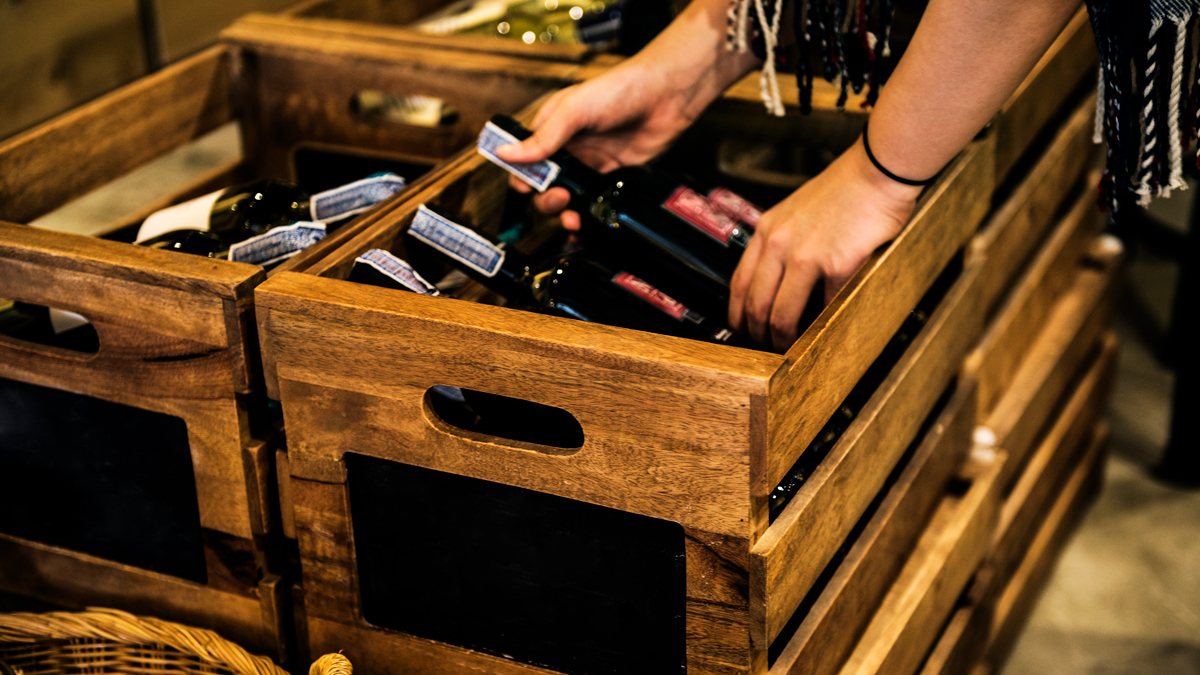
People have enjoyed drinking wine for literally thousands of years. It can combine beautiful flavors, textures, and aromas. Whilst some people enjoy the occasional tipple, others are more serious about their drinks.
When folks spend lots of money on buying quality beverages, the last thing they want is for them to degrade whilst in storage. There are a number of different factors that can age wine, and in the worst-case scenario, it can turn to vinegar. We will now discuss the key things you need to think about when storing it.
Temperature
This is the most important consideration, and it will vary from wine to wine. One blog about wine storage by WineCellarHQ states that wine bottles must be stored at a stable temperature at all times. It appears that 55 degrees Fahrenheit would be a good general temperature to aim for. It’s worth conducting some personal research on this subject. Look online to find the best storing and cooling solutions. Some specialist sites have price matching and free shipping offers. People are also looking for product photos and reviews, as well as wine-related blogs about cooling units and wine cellars.
Temperature fluctuations cause the corks to expand and contract. It’s therefore important to control how your wine is delivered to you. If it’s been stored in a shop with overhead lighting, this will have already adversely affected your wine.
Normal Fridges
Standard fridge temperatures average around 37 degrees Fahrenheit, which is too cool for your wine. Your drinks may be ok there for two weeks, but no longer. The cork would be likely to shrink and let the air in. Any smells or flavors from the food could also affect the taste of the wine.
Never store bottles on the top, because of the heat rising from the cooling unit.
Humidity And Light
The humidity levels need to be between 65 and 75RH. If they go below this, the corks will dry out and become parched. This creates the potential for the growth of mildew and generates oxidation. The latter occurs when air enters the bottle and affects the wine’s color, flavor, and aromas.
If you don’t want your drinks to prematurely age, it’s advisable to store them in a dark place. That’s why they were kept in underground caves and cellars in the past.
Whilst red wines are slightly more resilient to temperatures, white wines are more vulnerable to light. Most bottles are tinted, but this won’t prove 100% effective in blocking it out. Light brings the heat with it, and harmful UV rays can affect the aroma and flavor of your wine.
Movement
If you store your wine in or on top of the fridge, the vibrations could upset the sediment in the bottle. Don’t keep it near such appliances as washing machines, dryers, and dishwashers either.
If you exercise indoors, play the drums or have a music system, these activities could also disturb your wine.
Bottle Storage
Most people have seen wine stored horizontally in racks. There is a specific reason for this: when the cork maintains contact with the wine, it remains moist and does not shrink. This keeps the wine sealed in, and the air out. Whilst this does not apply to wines that have a screw top, people often store them horizontally too, for convenience.
There are many things a collector can store their bottles in – including bins, wine fridges, racks, and wine boxes. It’s possible to buy free-standing coolers and under-cabinet versions. Dual temperature coolers serve a special purpose: one area will be used to store the wine, whilst the other will function to prepare it for serving.
Wine Cellars
As with storing wines in a normal fridge, any strong flavors or smells in the cellar could affect the wine taste. Wine ‘breathes,’ so in that sense, it can ‘inhale’ the other odors and tastes. Therefore make sure your wine is stored in a well-ventilated area. As we’ve already discussed, any vibrations would be unhelpful too. That’s why some people have wall-mounted wine racks.
When your wine arrives safely home, research the ideal storage temperature. Also, check how long it will last. No matter how well you store it, it won’t be as good if you don’t drink it in time!
Just as we need our wines to be well maintained during transit, it’s essential that we look after them on arrival. This way we’ll be able to enjoy our favorite wines at their optimum quality. Both we and anyone else who drinks them will appreciate the difference.




